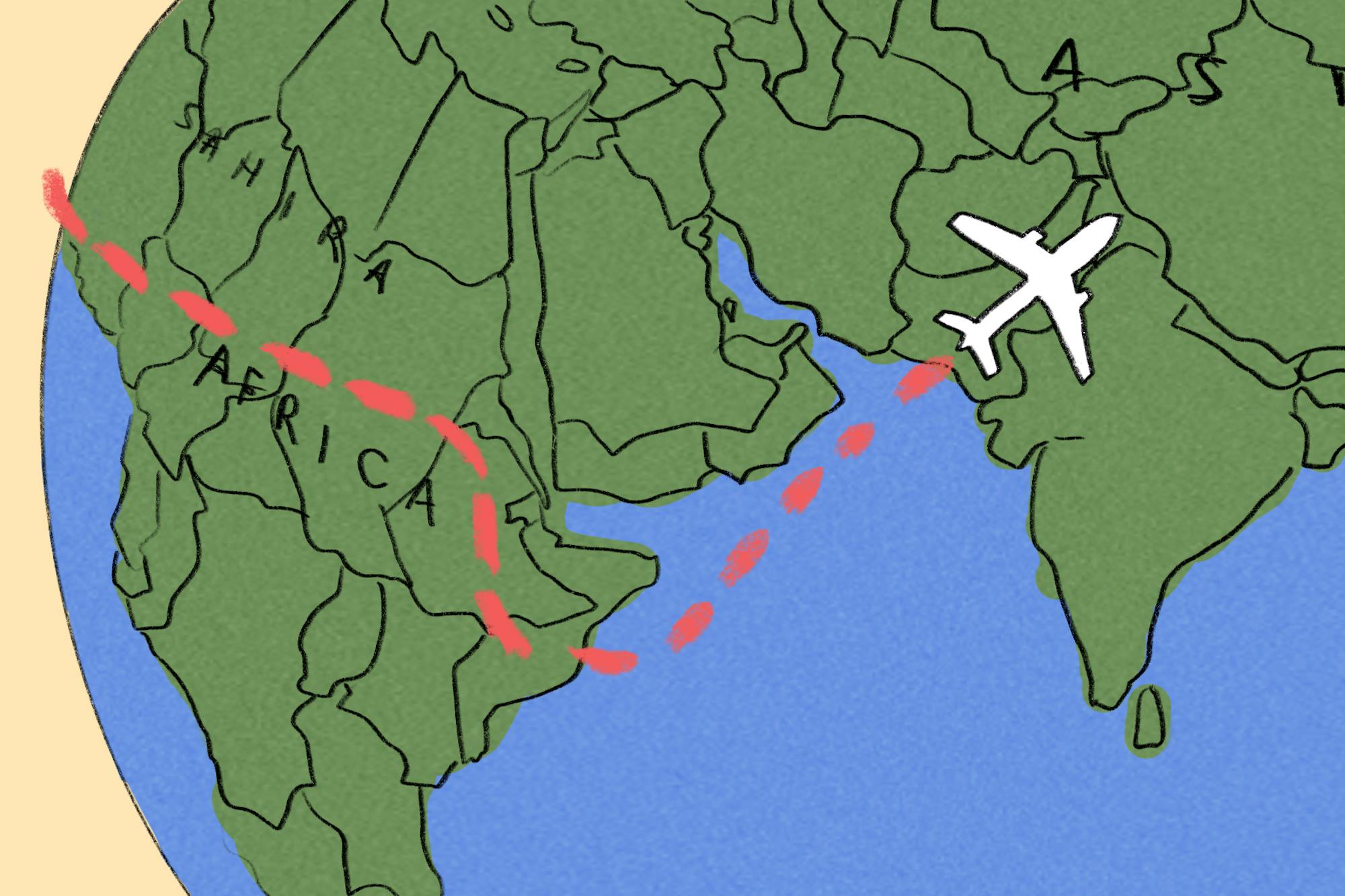Dartmouth’s study abroad programs are some of the most talked about experiences on campus, providing students with unique opportunities to immerse themselves in a different culture while pursuing their academic passions. While many students return from their trips abroad with rave reviews and shifted perspectives on the world, there are exceptions. For some, living and studying in other countries can lead to challenges that are often overlooked.
While living abroad allows for exciting experiences, adapting to general lifestyle changes can always be a challenge. Claire O’Shaughnessy ’25, who studied abroad in Buenos Aires on the Spanish language study abroad plus, said one of the more significant shifts to her routine was the frequent use of public transportation — which is much less common in Hanover.
“The amount of time that we spent commuting on buses in Buenos Aires to class and to different mandatory cultural experiences and things like that would [have been] unmanageable if we had the kind of course load that I’ve had recently in past terms at Dartmouth,” she said.
Aliya Dhanji ’25, who studied abroad in South Africa and Namibia on the environmental studies foreign study program, frequently went on outdoor group camping trips as part of the experience. According to Dhanji, this dynamic allowed the students to spend considerable time around each other but gave them little space to be alone and recharge.
“We spent a lot of time as a group together, which became a bit much at times because there was no point where we had time to be by ourselves,” she said.
In addition to a complicated change of location, some students on study abroad programs discovered it could be difficult to find food that catered to their dietary needs. Dhanji said that on the environmental studies program, there were times where the only lunch options would be items containing ham — a challenge for Dhanji, who doesn’t eat pork. In addition, the program’s camping excursions made finding access to dietary-friendly food even more difficult.
“We moved often, so it wasn’t like we were in one place the whole time,” Dhanji said. “We didn’t have access to a lot of things while we were on the go.”
Alongside dietary restrictions, some students find adapting to another country’s cuisine to be daunting in general. However, Tej Patel ’25 — who studied in Edinburgh, Scotland as a part of the religion FSP last fall — felt that having a wide range of food options nearby, including a grocery store, made the change quite simple. Patel said that, while abroad, he never felt restricted to only eating certain types of food.
“[The grocery stores had] pretty much everything that you would get in an American grocery store,” he said. “[When we dined out], there were always Scottish food options, but also different food options.”
O’Shaughnessy said she also felt the adjustment was relatively easy, since at only two-and-a-half months long, she considered her program to be fairly short. However, she explained that her eating habits were quite different from her usual eating habits in Hanover because the cuisine in Buenos Aires consists of relatively more meat and dairy.
“I tend to eat mostly vegetarian while I’m at school, or at least pescatarian, so I didn’t feel super great with regards to that,” O’Shaughnessy said.
Academics can also play a significant role in making a study abroad experience enjoyable. Dhanji explained that during the end of her program, she felt herself starting to get burnt out. Even her “off” days — when she had no planned activities or class — were very intense and demanding, she added.
“The day[s] that we had off, we still had to write papers and do assignments, so that was really, really hard,” Dhanji said.
Some students also had difficulties communicating effectively with their professors while abroad. Towards the end of the term, Patel said his Dartmouth professor stopped providing him and his classmates with as much guidance in regard to their assignments and grades.
“We were kind of left in the dark, [having to figure the assignments] out on our own and trying to guess what she wanted, because she was really unresponsive to us,” he said.
Patel said he believes the change in academic environment from Hanover to Edinburgh played a factor in his academic frustrations. Since he had opportunities to travel with other people on his trip, Patel added that he and his peers spent less time doing schoolwork. Instead, they focused on taking advantage of what their new setting had to offer, exploring Scotland and nearby countries.
While adapting to studying in a different country has its difficulties, O’Shaughnessy felt that her experience was largely positive, and that maintaining certain parts of her daily routine — such as going to the gym and eating mostly meat-free meals — made the transition easier.
“I think that if you maintain some … of your routine, by the time the program ends, you’ll feel ready to go home, and you won’t feel too out of whack,” she said.
For Dhanji, embracing challenges — rather than running from them — ultimately made her experience more fulfilling.
“At some point, we did burn out a little bit, so some advice that I would give to someone would be to find things that make them feel grounded — whether it be journaling, talking to family, finding a way to get alone time, prayer — whatever [being grounded] may look like,” she said.
Update appended (Apr. 20, 3:46 p.m.): The article has been updated to provide additional context to Claire O'Shaughnessy '25's statements.




